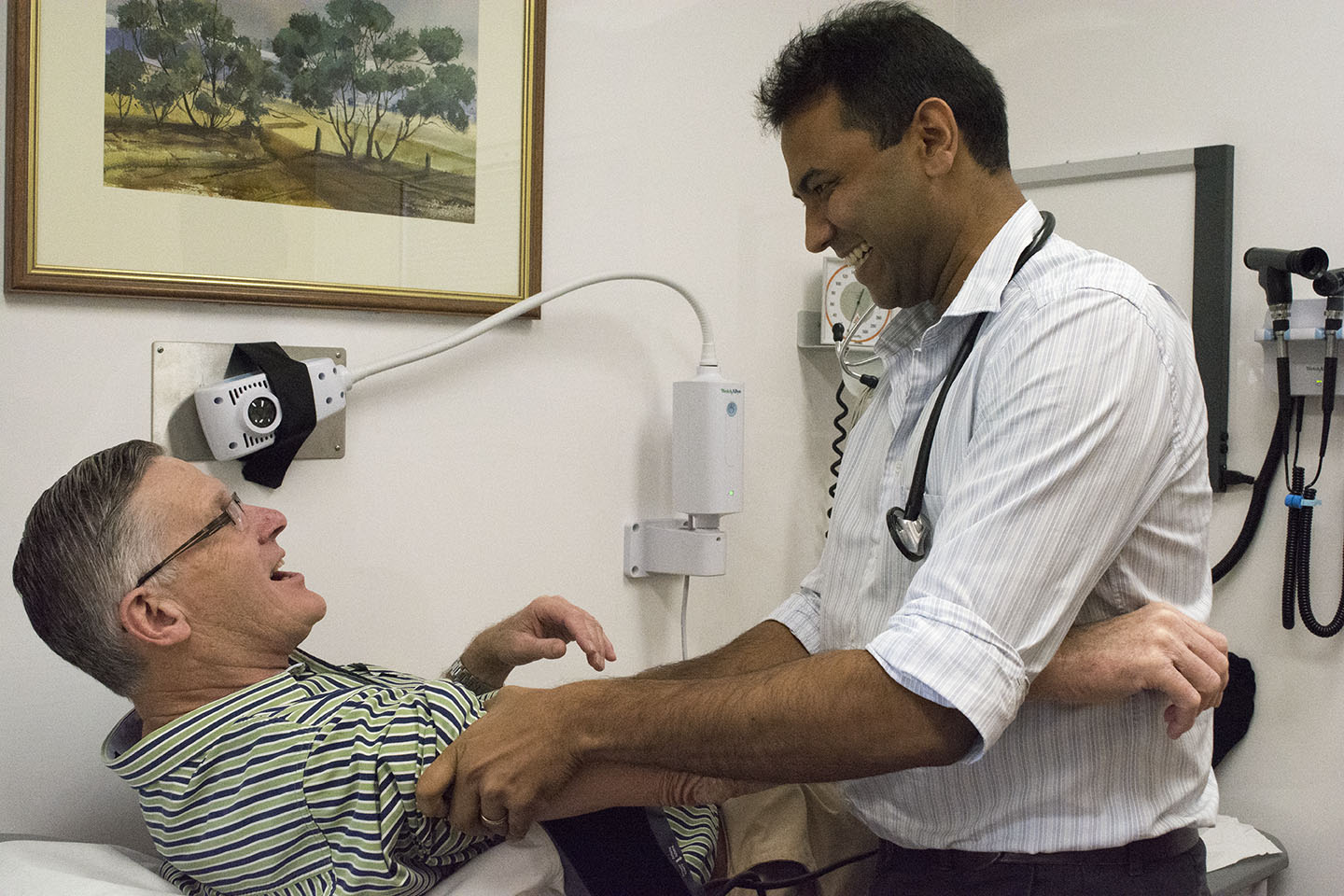Information for Patients
Heart of Australia is a mobile healthcare service that provides access to specialists and diagnostic testing for those living in rural, remote, and First Nations communities.
Our Heart Trucks are fitted with all the amenities you would expect to find in a city-based specialist practice, from testing equipment to consulting rooms and a reception area.
How to make an appointment
Step one: Visit your GP
Make an appointment to see your GP to discuss your health concerns with them. If a visit to the Heart Truck is the right choice for you, your GP will send Heart of Australia a referral for you to see one of our specialists or undergo testing.
Step two: Wait for our call
Our Medical Administration Team will contact you by phone as soon as your referral is received. They will then contact you again once appointments become available at the clinic location/s closest to you. They will talk you through all the details, including appointment times, location of the clinic, and what you’ll need to bring with you. It’s that simple.
What you need to know about your appointment
For all appointments please bring:
-
GP referral letter
-
List of medications you are taking (please bring in the medication if you prefer)
-
Any recent radiology scans
-
New patient information and privacy form
-
Your other specialist or doctor contact details
Services available
Specialist services:
- Cardiology
- Endocrinology
- Gastroenterology
- Geriatric Medicine
- Gynaecology
- Neurology
- Psychology
- Radiology
- Respiratory
- Sleep
- Urology
Diagnostic services:
- Ambulatory Blood Pressure Monitoring
- CPAP trials
- CT scans
- ECG
- Exercise Stress Testing
- Holter monitoring
- Respiratory Function Testing
- Sleep Apnoea Testing
- Stress Echocardiograms
- Transthoracic Echocardiogram
- X-ray
Tests explained
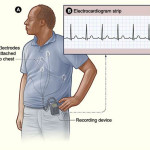
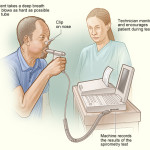
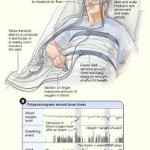
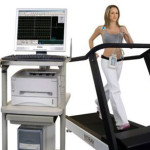
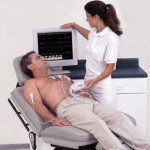
Lung Function Test
Spirometry is a common office test used to assess how well your lungs work by measuring how much air you inhale, how much you exhale and how quickly you exhale.
Follow your doctor’s instructions about whether you should avoid the use of inhaled breathing. Wear loose clothes that won’t interfere with your ability to take a deep breath and avoid eating a large meal before your test.
Find out more here: Lung Function Test
Home Sleep Study
Home sleep studies provide a sleep physician with the information needed to diagnose sleep apnea. It allows you to sleep at home wearing equipment that collects information about how you breathe during sleep.
On the day of the test try to follow your regular routine as much as possible, avoid napping and eliminate the use of caffeine after lunch.
Find out more here: home sleep study
Transthoracic Echocardiography
An echocardiogram is an ultrasound scan of the heart. It is used to visualise the four chambers of the heart as well as the four heart valves and surrounding structures.
During an echocardiogram, you will have to lie on your back or left-hand side for approximately 40 minutes with your chest exposed. A probe and some gel will be placed on the surface of your chest which will allow the heart to be imaged.
An Echocardiogram is completely safe. It will not interfere with any electronic devices. No specific preparation is required for this test.
Find out more here: Transthoracic Echocardiography
Exercise Stress Test
An Exercise Stress Test is a test to see how your heart performs when it is asked to work harder. It is often used to determine if there are problems with the blood supply to the heart muscle which may put you at risk of having a heart attack.
During an exercise stress test, you will be asked to walk briskly on a treadmill during which the pattern of electrical activity generated by your heart (ECG) will be closely observed.
There is a small risk of having a heart attack or dying during the test. The risk is however small and needs to be balanced against the potential benefits the information gained from the test could offer. A Doctor will be present at all times during the test who will be monitoring your progress closely.
Find out more here: Exercise Stress Test
Exercise Stress Echocardiogram
This test is to see how your heart performs when it is placed under exercise or stress. The test is often used to investigate symptoms such as chest discomfort or breathlessness, and in people with known or suspected heart disease.
During an exercise stress echocardiogram, first stage a cardiac scientist performs an echocardiogram, (ultrasound of the heart). To ensure good contact between your skin and the probe, ultrasound jelly is placed at several different sites on your chest. In the second stage, your heart is exercised or ‘stressed’ by walking on a treadmill.
There is a rare risk of having a heart attack or death as a result of this procedure is extremely rare. The risks need to be balanced against the potential benefits and the information gained from this test. A Doctor will be present at all times during the test who will be monitoring your progress closely.
As you will be exercising on a treadmill, we advise that you to wear suitable clothing and footwear. You may eat and drink the day of your test but please cease food or drink (except water) 4 hours prior to your test. Please avoid consuming any caffeine or caffeinated products on the day of the test, this includes but not limited to coffee, tea, high sugary drinks i.e. cola, energy drinks, and chocolate products. Avoid smoking cigarettes on the day prior to your test. Both caffeine and nicotine will interfere with the results of your test.
Find out more here: Exercise Stress Echocardiogram
24 Hour & 7 Day Holter Monitoring
A Holter Monitor is a device that records the electrical impulses generated by your heart which cause it to beat. The device records every heartbeat over approximately 24 hours. It is used when patients are suspected of having abnormal heart rhythms or missing beats. A Holter Monitor is completely safe and will not interfere with any other electronic devices. We advise patients to be mindful that they will not be able to get the device wet and will need to return it in approximately 24 hours.
Find out more here: 24 Hour and 7 Day Holter Monitoring
24 Hour Ambulatory Blood Pressure Monitoring
A 24-hour ambulatory blood pressure monitor is simply a device that is fitted and measures your blood pressure at regular intervals over a 24 hour period. It allows doctors to assess the pattern of your blood pressure over a 24 hour period in your usual environment. It is a completely safe test and requires no specific preparation. However, we advise that you wear clothing that will allow a blood pressure cuff to be fitted to your upper arm.
Find out more here: 24 Hour Ambulatory Blood Pressure Monitoring
ECG (Electro-cardiography)
An ECG is a surface recording of the electrical impulses generated by your heart that correspond to your heart rhythm. It provides valuable information regarding the structure and function of your heart. An ECG is completely safe and requires no specific preparation beforehand.
Find out more here: ECG (Electrocardiograph)
Fibroscan
A Fibroscan® is a relatively new test that can reveal any fibrosis (scarring) or fatty deposits within the liver. It is a non-invasive, quick and simple test that works using ultrasound and gives an immediate result. The only preparation required for a Fibroscan® is a 2 hour fast prior to the procedure (water is fine).
Find out more here: What you need to know about getting a Fibroscan
X-ray
X-ray is used to look at the internal structures within your body, especially your bones. An x-ray beam is sent through your body and the structures within absorb the beam in different ways, depending on the density of the structure. The imaging plate on the other side of your body measures the remaining density of the beam as it comes through your body. Dense objects, such as bone, are white on an x-ray. Air pockets, such as in your lungs, are black. Soft tissue structures are different shades of grey.
Find out more here: X-ray
Computed Tomography (CT)
A computed tomography (CT) scan is a medical imaging tool used to visualise areas of interest within your body. The machine is commonly known as the “doughnut”. It uses X-rays and digital computer technology to create detailed cross-sectional (slices) and/or three-dimensional images of your body that a doctor would like to investigate. CT scan images show a greater amount of detail compared with plain X-ray, which can only create two-dimensional images of the body.
Find out more here: CT scan

